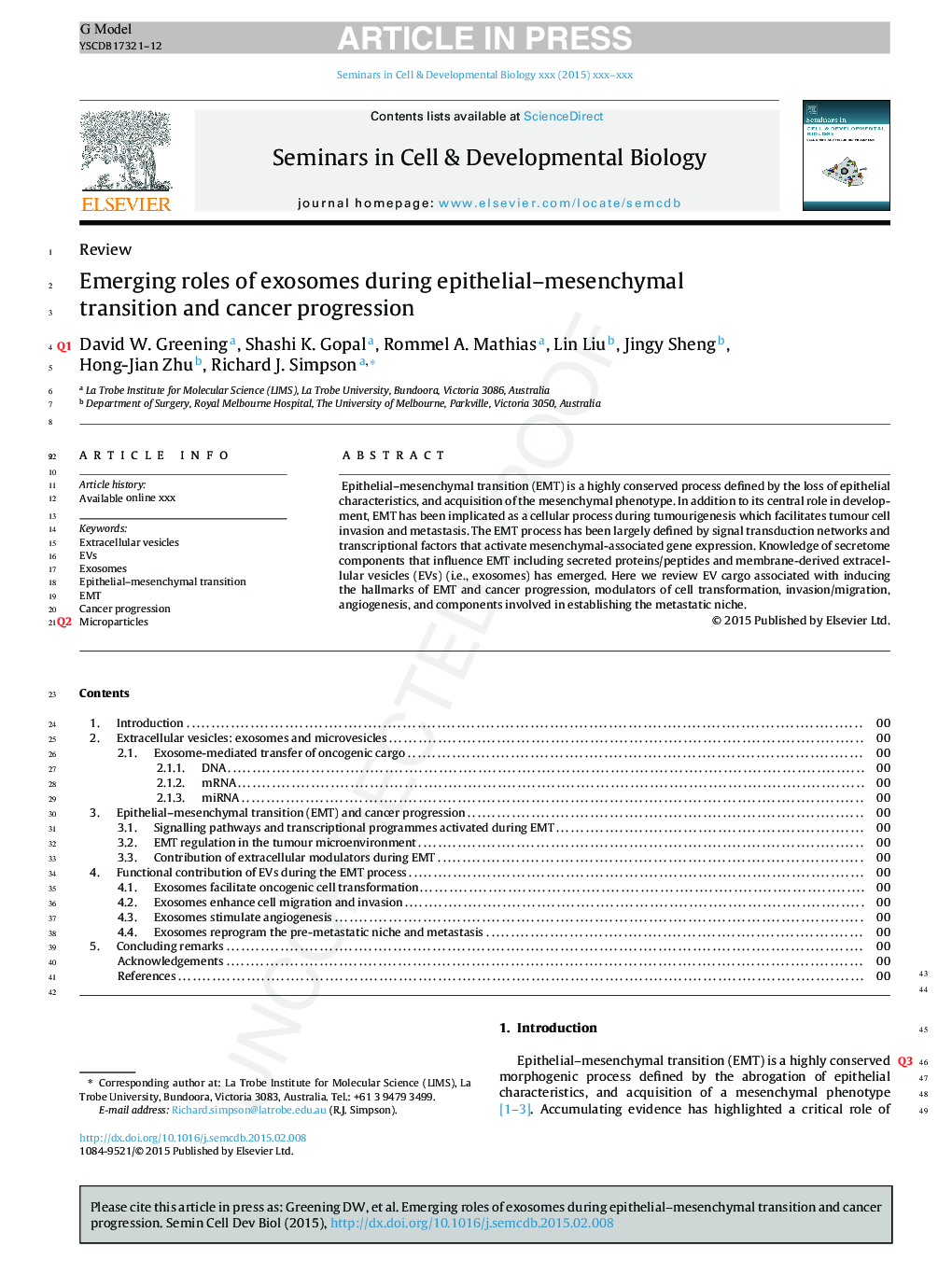| Article ID | Journal | Published Year | Pages | File Type |
|---|---|---|---|---|
| 8480446 | Seminars in Cell & Developmental Biology | 2015 | 12 Pages |
Abstract
Epithelial-mesenchymal transition (EMT) is a highly conserved process defined by the loss of epithelial characteristics, and acquisition of the mesenchymal phenotype. In addition to its central role in development, EMT has been implicated as a cellular process during tumourigenesis which facilitates tumour cell invasion and metastasis. The EMT process has been largely defined by signal transduction networks and transcriptional factors that activate mesenchymal-associated gene expression. Knowledge of secretome components that influence EMT including secreted proteins/peptides and membrane-derived extracellular vesicles (EVs) (i.e., exosomes) has emerged. Here we review EV cargo associated with inducing the hallmarks of EMT and cancer progression, modulators of cell transformation, invasion/migration, angiogenesis, and components involved in establishing the metastatic niche.
Keywords
Related Topics
Life Sciences
Biochemistry, Genetics and Molecular Biology
Cell Biology
Authors
David W. Greening, Shashi K. Gopal, Rommel A. Mathias, Lin Liu, Jingyi Sheng, Hong-Jian Zhu, Richard J. Simpson,
